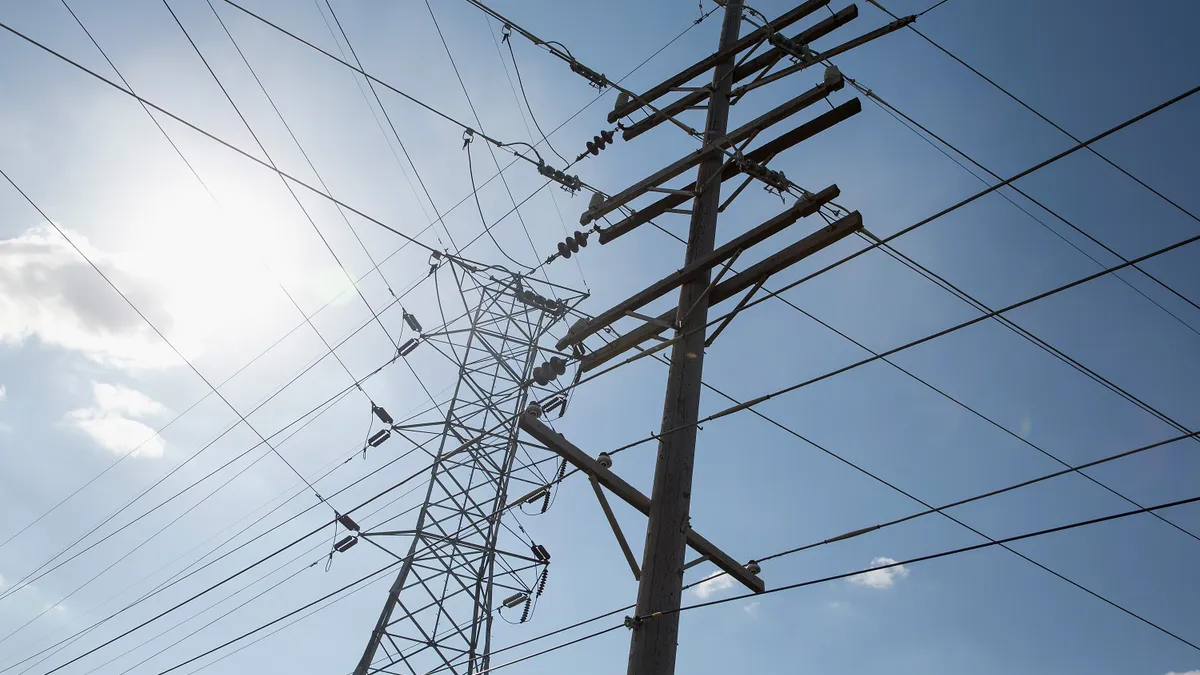UPDATE: October 8, 2021: The North Carolina General Assembly approved HB951 on Oct. 7 after it passed the state Senate the day before. Luis Martinez, director of Southeast epnergy for the Climate & Clean Energy Program at the Natural Resources Defense Council, urged Gov. Roy Cooper, D, to sign the bill, saying it "is not perfect, but it is much improved and presents many opportunities for clean energy in North Carolina." However, "some business and consumer groups oppose the bill, saying it could lead to higher rates," Blue Ridge Public Radio reported. Cooper is expected to sign the bill. "The strong bipartisan vote for the energy bill is a win for people all across North Carolina who will benefit from clean, renewable and reliable energy that is more accessible for everyone and better for the environment," he said in a statement issued after the General Assembly vote.
Dive Brief:
-
With Duke Energy preparing to spend billions shifting away from coal-fired power, the utility company would be able to file three-year rate plans allowing cost-recovery for expenses as they occur, under a revised bill expected to move through the North Carolina General Assembly this week.
-
Democratic Gov. Roy Cooper unveiled a new version of an energy bill with a bipartisan group of lawmakers that would require state utility regulators to take "all reasonable steps" to cut 70% of greenhouse gas emissions from Duke's fleet by 2030, from 2005 levels. The bill would direct the North Carolina Utilities Commission (NCUC) to enable Duke to be carbon neutral by 2050.
-
The updated legislation won general support from renewable energy advocates, but groups like the North Carolina Justice Center and the Carolina Utility Customers Association (CUCA) oppose the bill, saying it could drive up electric bills by roughly 50%.
Dive Insight:
In July, the Republican-led North Carolina House of Representatives passed a sweeping energy bill, but Cooper, renewable energy companies and consumer advocates opposed it, partly over concerns it would dilute the NCUC’s authority and increase electric rates.
Cooper and legislative leaders on Oct. 1 said they had reached an agreement on a revised version of HB 951 that leaves the specifics of how to cut carbon emissions in the hands of the NCUC and Duke.
Duke, based in Charlotte, N.C., backs the bill. "Legislative leaders on both sides of the aisle recognize the opportunity in front of us to move away from coal and accelerate a clean energy transition for our state," Bill Norton, utility spokesman, said Monday in a statement.
The bill is "meaningfully improved" from its earlier version, Sarah McQuillan, government affairs manager for the North Carolina Sustainable Energy Association, said Monday in an email.
The revised bill preserves the NCUC’s authority over Duke, according to McQuillan. However, the trade group has "concerns" about provisions in the bill that could let Duke’s utilities over earn and possibly evade emissions reduction targets.
Although Senate hearings on the bill are set to start Oct. 5, the bill hasn’t been released by the General Assembly.
The legislation is being fast-tracked without adequate public scrutiny, according to Kevin Martin, executive director for CUCA, a trade group for the industrial sector.
"Most people don’t know this bill exists, much less its impacts," Martin said said Monday.
A version obtained by the Energy News Network indicates the legislation would let Duke file three-year performance-based rate plans as allowed in the original bill. Duke would also be able to securitize costs related to coal-fired power plants it retires early.
Under the bill, Duke could earn 0.5% above its authorized return before it would have to refund over-earnings to customers. If signed into law, Duke could see its rate revenue increase by up to 4% in the second year of a three-year rate period, and another 4% in the final year, according to the latest version of the bill.
Allowing Duke to earn an extra 0.5% above its allowed returns could increase electric bills by $100 million a year, Martin. Coupled with Duke’s spending plans, some companies’ electric bills could soar by millions of dollars a year under the legislation, according to Martin, who said some companies are considering moving to other states.
Currently, Duke’s North Carolina rates are based on past spending.
Around the country, state regulators are allowing utilities to adopt "trackers" or enter into multi-year rate plans to reduce "regulatory lag," the period of underearning that can occur between rate cases, according to Paul Patterson, an equity analyst with Glenrock Associates. The Maryland Public Service Commission last year approved a pilot process for multi-year rates.
The legislation comes as Duke’s utilities — Duke Energy Progress and Duke Energy Carolinas — are poised to invest in new generating resources and transmission lines to shift away from fossil fuels. The utilities could spend $80 billion to $108 billion in North Carolina and South Carolina through 2050, according to their most recent integrated resource plans filed in September 2020 with state regulators.
The proposed ratemaking framework could lead to roughly 50% rate hikes, which would hurt North Carolina’s industrial and manufacturing companies, according to CUCA's Martin.
Residential customers could also see their bills jump, according to Al Ripley, the director of the North Carolina Justice Center’s consumer, housing and energy project.
Multi-year ratemaking creates variables that are hard to track and that create incentives for utilities to increase costs, Ripley said. Also, the legislation gives Duke a pathway to select expensive options for reducing carbon emissions, according to the advocate for low-income consumers.
Duke’s Norton said it was too early to assess how the bill would affect electric rates.















